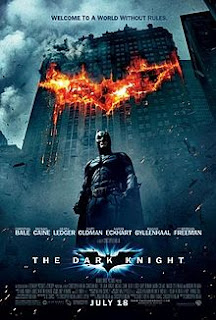RATING: C+
Ah, them low-budget thrillers. Normally I don't particularly care to delve into those too much. This one caught my eye with its premise involving American security and conspiracies, and journalistic ethics. What I didn't know until later was that it was an adaption of a six-part TV serial. In the end, I think I'd prefer sitting through two hours of this as opposed to six.
The story centers around a couple of newspaper stories going on--one, a late-night shooting from a mysterious figure of two people (one a mere accidental witness)--and the other being an apparent suicide of a woman on the Metro train. A reporter named Cal whose character development begins and ends with Russell Crowe is dealing with both of these stories, and when he partners with another reporter named Della, they begin to suspect the two incidents are connected somehow.
State of Play, for a film that's supposed to be a thriller, would probably be pretty doggone boring during the first hour for a guy who wasn't interested in its various subtopics. Not much happens during that time before the actual details of the massive conspiracy finally start to come out. Once the secrets do start unrevealing themselves, things start getting a lot more interesting. There is a massive plot twist late that is hard to see coming unless you're paying close attention.
Unfortunately, despite a nice cast (Russell Crowe, Ben Affleck, Rachel McAdams, Helen Mirren) and a well-done plot, the film does suffer from slow pacing early on and a lack of interesting characters. The film probably could've been cut to 90 or 100 minutes and it wouldn't have mattered, and the film probably would've actually come out better for it.
I do have to give credit to the movie, though, for creating a very interesting plot line and mystery. They do a pretty decent job of involving the political and social aspects as well, which is partly what interested me in the first place. Again, I am inclined to wish that they would've put in a lot more character development and that they would've trimmed down the thing a bit. But in the end, State of Play is a film which should appeal--to one degree or another--to fans of the political thriller genre. Others will likely find it pretty forgettable.










